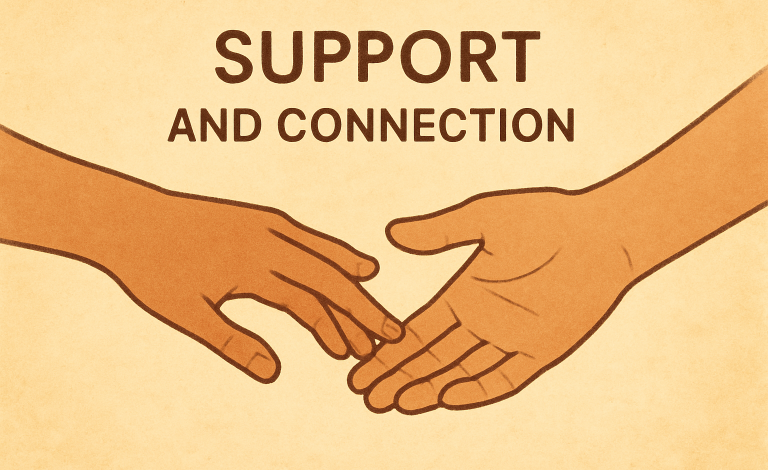Recognizing the Right Time to Seek Help for Mental Health and Addiction

Understanding the Signs of Mental Health and Addiction Issues
Early identification of mental health and addiction issues is key to preventing further distress and achieving positive recovery outcomes. These problems can manifest in both subtle and overt ways. Individuals may notice persistent feelings of sadness, overwhelming anxiety, hopelessness, or a lack of interest in usual activities. Changes in sleeping or eating patterns, unusual irritability, and social withdrawal are also frequent red flags. For addiction, reliance on substances to manage daily challenges, increasing consumption, or unsuccessful attempts to cut back indicate a need for intervention.
Gaining awareness about these symptoms is an empowering step. Specialized treatment centers like Villa Kali Ma offer comprehensive support for those navigating the complexities of mental health and addiction, providing tailored care designed to foster healing and long-term success.
Common Barriers to Seeking Help
Home, work, or social responsibilities often contribute to hiding these underlying challenges. However, the most pervasive obstacles are internal: stigma, fear of being misunderstood or judged, and uncertainty about what help entails. Many people worry that admitting to mental health or substance use problems may affect their reputation, relationships, or employment.
These barriers are formidable, but not insurmountable. Seeking professional support is not admitting weakness—it’s a profound expression of courage and self-awareness. Public health organizations, medical professionals, and advocates stress the importance of breaking down these walls to ensure everyone can access the care they deserve. For further reading, see this helpful overview from Mayo Clinic on overcoming barriers to mental health care.
When to Seek Professional Help
Recognizing the threshold for professional intervention is significant. If symptoms persist longer than two weeks, disrupt daily responsibilities, negatively affect relationships, or escalate to thoughts of self-harm or unsafe substance use, it’s time to contact a healthcare provider or qualified counselor. Even if the symptoms seem manageable, seeking advice from a mental health professional or addiction specialist can help prevent the situation from worsening and provide much-needed guidance in setting up a path toward wellness.
Available Resources for Immediate Assistance
Timely support can make a lifesaving difference. National and local organizations provide immediate, confidential advice for those in crisis. The Substance Abuse and Mental Health Services Administration (SAMHSA) operates a 24/7 helpline at 1-800-662-HELP (4357), guiding callers toward local treatment and information. For those in acute emotional distress or experiencing a mental health crisis, the 988 Suicide & Crisis Lifeline offers rapid access to trained crisis counselors.
The Role of Support Systems in Recovery
Social connection and compassionate understanding play a vital role in the recovery process. Friends, family members, and peers can provide emotional support during difficult times, offer practical assistance, and help individuals stay motivated. Whether through community organizations, treatment centers, or virtual platforms, support groups create a safe space for sharing experiences and advice. As noted by NAMI, being part of a community with shared experiences can dramatically improve resilience and accountability in recovery.
See also: Wayne Newton Net Worth And Social life Facts
Breaking the Stigma Surrounding Mental Health and Addiction
Stigma remains a significant roadblock for millions of people in need of mental health or addiction support. Outdated beliefs and misconceptions about these issues fuel shame and isolation. Open communication, education, and advocacy are potent tools for changing public perception. Emphasizing that mental health and substance use disorders are medical challenges—no different than physical illness—can foster a more understanding and compassionate community, encouraging more individuals to seek needed support.
Steps to Take When Seeking Help
- Recognize the Need: Self-reflection is critical—acknowledge signs of distress or reliance on substances.
- Research Resources: Learn about local and national organizations that provide support, such as SAMHSA or treatment facilities like Villa Kali Ma.
- Reach Out: Initiate a conversation with a healthcare provider, therapist, or helpline for a confidential assessment and recommendations.
- Develop a Plan: Collaborate with medical or mental health professionals to create a plan tailored to individual goals and circumstances.
- Engage Support Systems: Involve trusted friends and family, or join a peer support group to enhance resilience and motivation throughout the recovery journey.
Conclusion
Understanding when to seek help for mental health and addiction is a crucial milestone on the journey to wellness. With increased awareness, reduced stigma, and the availability of compassionate care, individuals can break free from isolation and regain control of their lives. Recognize the signs, overcome the obstacles, and use the many professional and community resources available to pave the way toward a healthier, more fulfilling future. Remember, seeking help is a sign of strength and hope.




